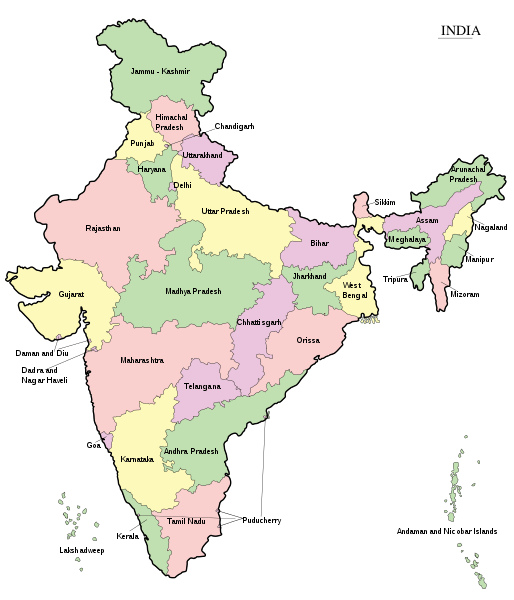Doing Business in India Explained and How to Do Business in India
[4-min read]
Question: Doing Business in India? Here are some quick tips
Answer: (below)
- Respect the hierarchy and don’t jump “rank” (skipping a layer of hierarchy)
- Loss of face is real. So, be careful not to single out an individual when working in a team
- Understand the Indian head nod (see video below)
- Hearing a “yes” is not always a “yes” so don’t push it. Ask circumventing questions to get the real answer
- Family is important. Just like relationships. Take your time to develop them. Doing this will be worth your while
- Understand that not every Indian speaks English, nor do they all work in IT
- And finally: Read this article…
In this country-specific article, I will cover several topics:
- How to do business in India, or doing business in India Explained
- Business Culture in India
- Understanding Indian Culture
- Working with Indians
What will you learn?
- Interpreting the Indian head-nod.
- How to do business in India and how to deal with Indians in business.
- Why doing business in India involves relationship building.
- How India scores on the first primary dimensions of culture.
- The essence of doing business with India.
- Indian predictability.
- and a lot more…
Which one of these statements do you recognize?
- You don’t understand “Indian English“.
- The Indian Yes & No nodding (watch the 1-minute video below) in Indian business culture is difficult to read
- When delegating a task, you get what you ask for, but not what you want (do you see the difference?)
- You wonder why Indians don’t ask for help if they don’t understand something, but simply muddle through
- It’s difficult to understand the Indian “family thing“
- Why do Indians never give you a “straight” answer or why do they say “Yes” to everything?
- Etc.
If you recognize any of the above examples, read on…
Watch this short, 1-minute video to understand the famous Indian head nod…
What This Article is NOT About
Even though I will use some statistics, this article is not about the facts and figures. It’s about understanding Indian culture in business. More statistics about doing business in India can be found here.
Although there is a map of the country, this article is not a tourist guide. It’s about business culture in India, working with Indians, and understanding Indian culture in business. Next to this, a good source for a better understanding of Indian culture is Wikipedia. Click here to find out more.
So Why This Article on Doing Business in India?
My 20+ years of experience working with different cultures, doing business with India, and working with Indians in and outside India have taken up a significant part of those years.
In addition, I’ve worked with many companies that either employed Indians in their organization or who were working with Indians or doing business in India but then more in terms of outsourcing.
Either way, for most non-Indians, it was not easy working with Indians. People would not understand their English (this tends to be typically true for people from the Mumbai area), or they wouldn’t understand the (famous?) Indian head-shake (does it mean yes or no?).
Quite often both Indians and Westerners simply don’t understand each other. In other words, doing business in India, how to do business in India culture, and working with Indians is not that simple for most Westerners.
And the more you understand Indian culture, the better, more efficient, and more effective you will be.
Books on Indian etiquette and business practice will tell you some do’s and don’ts, but they won’t tell you how to do business in India. You have to dig several layers deeper. Business in India isn’t as straightforward as it is in the West.
Business Culture in India
Below you see a table with an overview of how India scores on the first four primary dimensions of culture. If you want to know more specifics about each of these dimensions, click here.
Scores of India on the First Four Primary Dimensions of Culture
| Hierarchy | Loyalty | Goal Orientation | Predictability | |
| India | 74 | 48 | 65 | 43 |
| United States | 39 | 90 | 63 | 45 |
| France | 65 | 75 | 49 | 88 |
| United Kingdom | 38 | 90 | 65 | 36 |
As you can see, India, compared to the other Western countries, scores quite differently (any score with more than 10 points difference is significant). This means that when you’re working with Indians it is important to realize that different cultures will have different ways of doing business in India.
In terms of the third dimension, Goal Orientation, it is worthwhile noting that the more South you go in India the lower the score will be. Even as low as 25. So it makes sense to ask where your Indian counterpart is from to better understand Indian culture.
India’s Predictability Dimension
A special word on Predictability in India: I call this dimension Predictability as opposed to Uncertainty Avoidance because I think it’s simply more practical to use as a business term. When looking at the fourth column in the above table, you can see that India scores relatively low on Predictability. Most people are surprised to see this because they may relate India to heavy bureaucracy.
An Example of Predictability in India
An example of India’s low predictability is the mountains of paper stacked in many local postal offices. The papers are being collected and kept. But… no one does anything with those papers. Why are those papers being kept then?
The explanation for this is that the rules (in doing business with India) are there to keep the power holder (i.e. the boss) in his position. In other words, to get something done, you need the (written and stamped) permission of the boss (who has a boss, who has a boss, etc). So, it’s not that “the Indian” needs a lot of structure and rules to work.
This is the explanation for the relatively low score on Predictability score in India.

Working With Indians: Is It That Difficult?
As said before, working with Indians will be different for different cultures. However, from my own experience of doing business in India, there are a couple of things that will help you understand Indian culture and will help you to work with them more effectively.
Mind you that these topics cover situations that pertain to how to do business in India, not per se to Indian family lives outside of the work environment.
6 Specific points
- Indians will generally not say no if you ask them to do something. If you are (being perceived as) the boss, an Indian will nod yes politely. Even if (s)he didn’t understand you. It is, therefore, important to check back if your Indian colleague indeed correctly has understood what you said.
- In the US and UK, it is possible to delegate upward. Meaning that if your boss asks you to do something you can make it conditional to the extent that you can request your boss to do something so you can complete the requested task. This is not common in India.
- Being more collectivistic or Loyalty-to-Group oriented, Indians put a lot more emphasis on relationships than on tasks. For an Indian, it is important to know who you are as a person. In India, it is relationships over tasks. In the West, it is a task over relationships.
- Indians communicate indirectly. Direct questions from Westerners are seen as rude and impolite. In response to a Westerner asking his Indian colleague if he can get “this” done in 2 weeks, the Indian could reply with something like “You’re asking quite a lot of me“.
- Status is important in India. Not only in what you can or have acquired but also in terms of the function or position you have in a company. Being a manager gives status.
- Although you might not see this at first, rules and regulations are not as important in India as they are in the West. Even though you might experience India as very bureaucratic, the rules, regulations, and paperwork are mainly a function of the power of the powerholder. Not so much a display of the need for rules.
Summing it Up
How to do business in India, understand Indian culture, and work with Indians is not as straightforward as you might think. And that says absolutely nothing about the Indians. It says everything about the cultural differences between Indian and Western cultures.
Common Misconceptions
You might think that every Indian speaks English, while actually, only about 10% do (source). Also, not every Indian has an MBA. And finally, not every Indian works in IT.
There are plenty of Indians that do though and even if they speak English, have an MBA, and work in IT if you don’t understand the culture, chances are high that the business you do in India will frustrate you more than necessary. That it will cost you more time and money than necessary or that you might fail completely.
Remember, Culture eats strategy for breakfast…
Doing business with China? Read this article
Other articles on India? Click here, or here
You might also be interested in Why men are better than women
A podcast on doing business in India with interesting stories can be found here.
Are you working with Indians? Get in Touch to Learn More
Get a Taste of How Chris Presents, Watch his TEDx Talk
 Call Direct: +32476524957
Call Direct: +32476524957
 European Office (Paris) Whatsapp: +32476524957
European Office (Paris) Whatsapp: +32476524957
The Americas (USA; Atlanta, GA; también en Español): +1 678 301 8369
Book Chris Smit as a Speaker
If you're looking for an Engaging, Exciting, and Interactive speaker on the subject of Intercultural Management & Awareness you came to the right place.
Chris has spoken at hundreds of events and to thousands of people on the subject of Cultural Diversity & Cultural Competence.
This is What Others Say About Chris:
- “Very Interactive and Engaging”
- “In little time he knew how to get the audience inspired and connected to his story”
- “His ability to make large groups of participants quickly and adequately aware of the huge impact of cultural differences is excellent”
- “Chris is a dedicated and inspirational professional”
In addition, his presentations can cover specific topics cultural topics, or generally on Cultural differences.
Presentations can vary anywhere from 20 minutes to 2 hours and are given worldwide.
Book Chris now by simply sending an email. Click here to do so.
Read more about what Chris can do for you.
- Percentage of People Rating a Presentation as Excellent 86%
- Rating the Presentation as Practical 89%
- Applicability of Chris' presentation 90%
About Peter van der Lende

Peter has joined forces with Culture Matters.
Because he has years and years of international business development experience joining forces therefore only seemed logical.
Being born and raised in the Netherlands, he has lived in more than 9 countries of which most were in Latin America.
He currently lives in Atlanta, Georgia (USA) with his family.
You can find out more at https://expand360.com/
Or find out what Peter can do for you here.
- 192 Cultural Differences and Franchising with Adam Goldman - 11 June 2025
- 191 Coffee Culture with Martin Mayorga - 3 April 2025
- 190 Collectivism in Western Culture with Rob Lion - 19 March 2025

 Call Direct: +32476524957
Call Direct: +32476524957 European Office (Paris) Whatsapp: +32476524957
European Office (Paris) Whatsapp: +32476524957
Chris Smit, thanks a lot for the article post.Much thanks again. Fantastic.
Hi,
Thanks for your compliment. My pleasure!
Kind regards,
Chris
Hi Chris,
first, I’d like to thank you for this article.
Do you also have something on the basic “Do’s and Don’ts” regardin this topic? or maybe can refer me to something?
Thank you,
Philipp
Hi Philipp,
Thanks for your compliment (Please share the article if you found it useful!).
I’m not a fan of do’s and don’ts. For the simple reason that they can change if the context changes. A Do becomes a don’t and vice versa.
Having said that, there are a few things that might help:
Never give anything with your left hand; always use your right hand.
Most Indians won’t wear a tie in a business context.
Make sure you understand the “head shake”.
Not all Indians speak English, have an MBA degree, or are in IT. Those are stereotypes; sometimes true, but not always.
Hope this helps a bit.
Hi,
one might find in many cases, specially in SME’s nepotism exists and flourishes. Not uncommon for the GM or CEO of a private enterprise to their kin in positions of power and decision making. In the West whilst this is frowned upon, the Indian would see that as protecting their turn with trusted employees.
Family, specially parents closely followed by (in many cases) religion forms part of the mindset and “agnostic” or Atheistic views may not be appreciated.
Hi Noel,
Indeed nepotism (having a preference to hire someone from one’s own “circle” or family over an outsider) is quite prevalent and deemed “normal” in collectivistic cultures like India; We will touch upon this during our upcoming webinar on March 2, 2021. If you want to, you can register here: https://culturematters.com/webinar